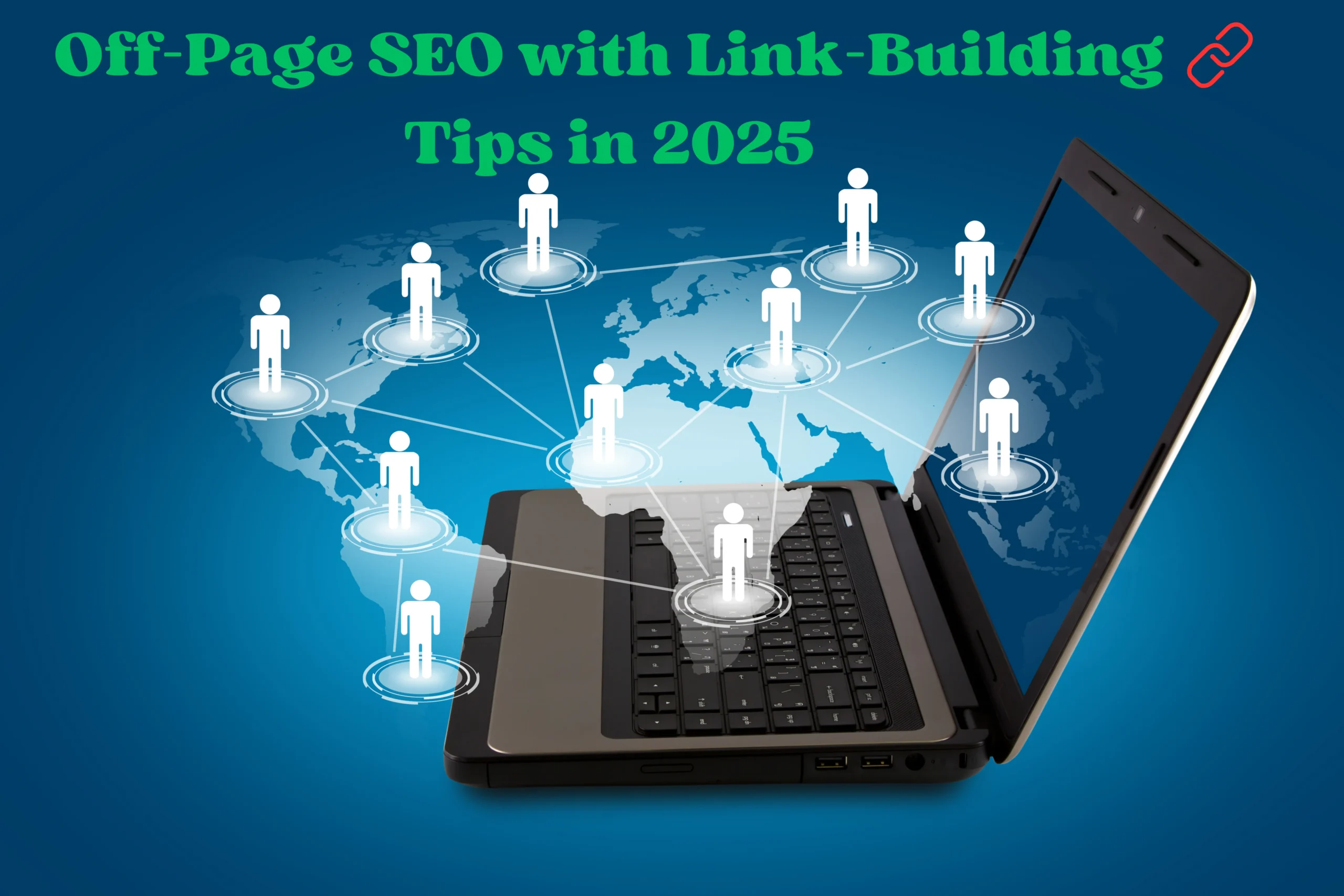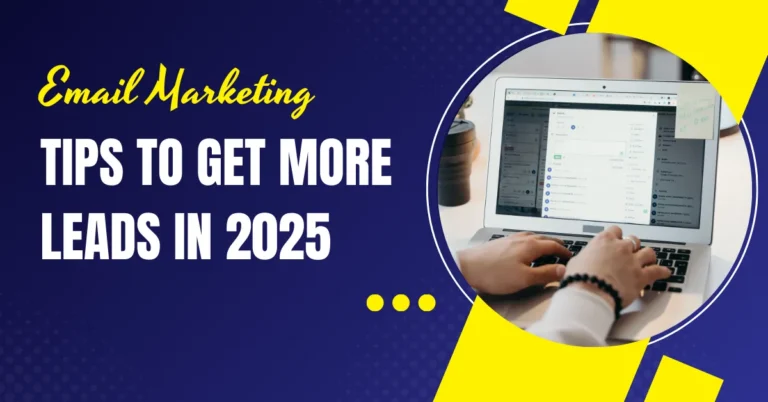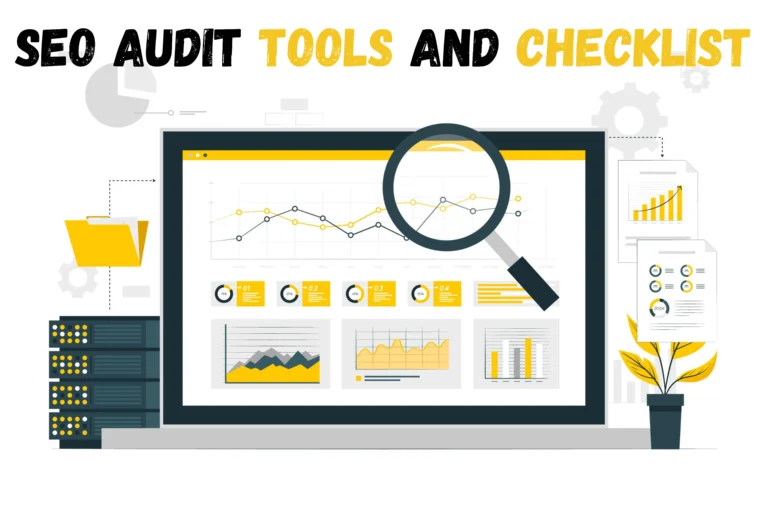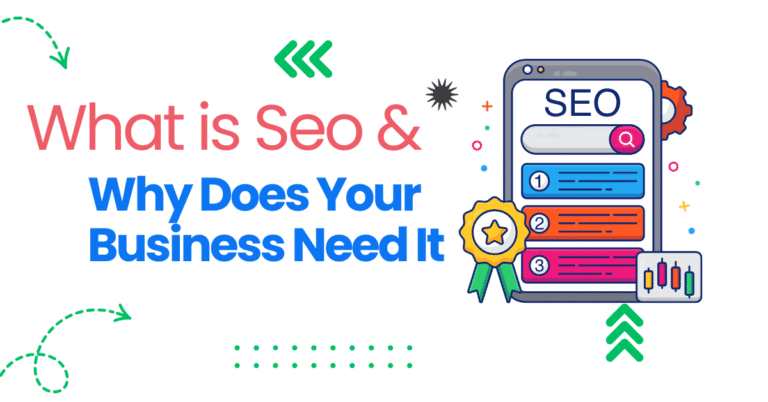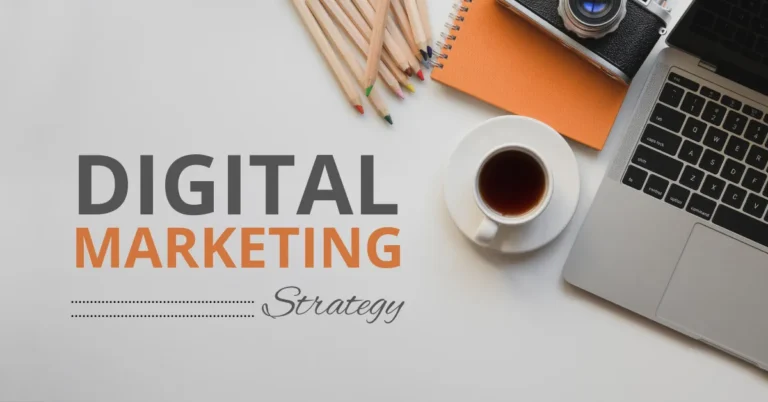If you’ve ever created a website but still struggled to get traffic, you’re not alone. Many people concentrate only on what’s happening on their website. But the reality is that Google’s algorithm looks far further than your website when determining who gets the top spot on search results. This is where off-page SEO starts.
So, what exactly is SEO? It stands for SEO, the process of increasing your site’s appearance on platforms like Google. It’s separated into two important types: on-page SEO (what you manage on your website) and off-page SEO (what links to your site).
Now, here’s a quick story: A few years ago, I helped a startup with amazing content that was getting zero organic traffic. After digging deep, we understand they had no backlinks, no mentions, and no outer credibility. Once we created a strong link-building strategy, their traffic increased by 300% in just three months.
In 2025, when emulation is tougher and Google’s algorithms are smarter. Off-page SEO isn’t voluntary; it’s important. It created trust, authority, and long-term rankings.
What is off-page SEO?
Off-page SEO includes all the conduct you take outside of your website to improve its rankings in search engines. While on-page SEO focuses on optimizing content and structure within your site, off-page SEO builds your website’s character in the broader internet world.
The most important part of outranked SEO is link structure, getting other websites to link back to yours. But it’s not just about links. It also includes all types of backlinks (guest posts, press releases, and social sharing content).
Think of SEO like a trust game. The more believable websites point to yours, the more Google trusts you. That’s especially important in 2025, as Google now heavily relies on E-E-A-T, Experience, Authoritativeness, and Responsibility, to rank pages.
Why Does Off-Page SEO Matter for Your Website?
You might have the most well-designed website with human-written and 100% good-quality content, but if there are no backlinks or references to it online, Google won’t trust it. That’s why off-page SEO is transformative.
One of the biggest benefits is that it helps you enhance your sphere of authority. The more authoritative websites link to your content, the more Google sees you as secure. This directly impacts your capability to rank advanced for competitive keywords.
Another key benefit is gaining organic visibility. When your website is linked by respected sites and reputable spots, you attract not just search engine attention but also referral business from those sources. Those are real people visiting your website from trusted platforms.
Let’s take an example: imagine two blogs with the same content. One has amazing content but no backlinks. The other has decent content but has earned backlinks from niche-relevant blogs. In most cases, Google will rank the alternative one advanced. Why? Because outranked SEO sends the signal that others value and trust that point.
In 2025, when trust and authority are more important than ever, off-page SEO is no longer voluntary; it’s essential.
Key Elements of Off-Page SEO
The key element of off-page SEO is given below:
Backlinks
Backlinks are the most crucial part of off-page SEO. These are links from other websites pointing to yours. There are different types, similar to do-follow (which passes SEO value) and no-follow (which doesn’t, but still brings visibility). High-authority backlinks from spots like Forbes or TechCrunch carry more weight than low-quality links. Niche-relevant links help boost Domain Authority (DA). In 2025, backlinks remain the strongest signal of trust and authority for search engines like Google.
Social Signals
Although social signals do not directly impact rankings. Engagements on platforms drive further visibility. When people like, share, or comment on your posts, it increases your brand exposure, which can lead to natural backlinks and further business. Social platforms also help search engines recognize content that users authentically enjoy, strengthening your point’s online presence over time.
Brand Mentions
Brand mentions are references to your brand name, with or without a hyperlink. A linked citation includes a clickable URL, while an unlinked citation is just a textbook citation. Unexpectedly, indeed unlinked mentions—called implied links—can impact your SEO. Google’s semantic algorithms can understand and interpret these references, fetching them as a trust signal. This makes brand visibility beyond your point more important than ever in the moment’s search geography.
Guest posting
Guest posting means writing a blog and publishing it on other sites in your niche, and increasing your site’s rating. This plan helps you earn backlinks and reach our people. It also positions you as a believable figure in your profession. By furnishing value through guest content, you not only grow your brand but also make long-term connections with other bloggers and point prospects, both of which contribute to better authority and SEO results.
Influencer & PR Outreach
Influencer outreach and digital PR involve uniting with study leaders or media outlets to get mentions, links, or features. When a trusted influencer addresses your brand or links to your content, it sends a strong signal of credibility. This can affect high-quality backlinks, press content, and targeted business. These sweatshops help make your brand character across channels, boosting not just rankings but also trust among real users.
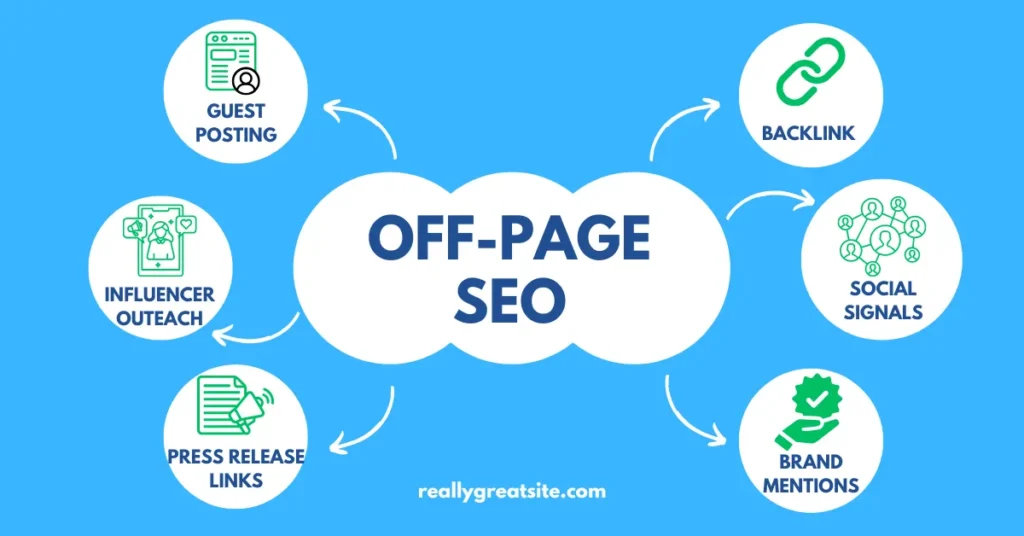
Step-by-Step Link Building Strategy
Produce Link-Worthy Content
Before you start creating links, make sure your content is actually worth linking to. Great linkable means include original exploration, infographics, how-to guides, and helpful tools. Content that educates, solves problems, or offers a unique perception naturally attracts attention from other websites. For example, publishing a detailed companion backed by stats gives people a reason to cite you in their content. To stand out, always aim to produce offers that are more, more useful, or even more useful than what is currently out there.
Contender Backlink Research
One of the smartest ways to find link openings is to look at where your candidates are getting their backlinks. Tools like Ahrefs and SEMrush can help you identify these sources. Simply enter a contender’s URL and explore their backlink profile. Look for websites that might be willing to link to your content, especially if yours is more updated or detailed. This gives you a clear roadmap rather than guessing where to start your outreach.
Outreach with Personalization
Now that you’ve set up implicit link sources, the next step is substantiated outreach. Don’t shoot spammy emails. Rather, write a short, friendly, and customized message. Mention commodity-specific content, and easily explain how your link adds value. An introductory script might be “Hi (Name), I loved your composition on (Content). I recently published a detailed update that includes new data—would you consider adding it as a resource?” Keep it moral, helpful, and to the point to increase your success rate.
Pitching Guest Posts
Guest posts remain one of the most effective ways to earn quality backlinks. Start by relating blogs in your niche that accept guest contributions. Use search queries like “write for us (your niche)” to find them. But don’t pitch right down. First, make a relationship—comment on their posts, share their content, and engage on social media. When you eventually pitch a guest post, make sure it’s unique, applicable, and offers real value to their viewers. This approach creates long-term results.
Follow-Up
Don’t give up if you do not get a reply. Emails are part of the process, so wait for an answer. Stay around 4–5 days before transferring a gentle memorial. Numerous successful link builders get responses on their first or third dispatch. Also, utilize Google Workspace or a CRM tool. Keep a record of websites, communication dates, responses, and issues. Organized tracking ensures you stay harmonious and helps you ameliorate over time.
Common Link-Building Mistakes to Avoid
Indeed, with stylish intentions, numerous newcomers make link structure mistakes that can hurt their SEO rather than help it. Let’s look at the most common ones so you can avoid them.
Buying backlinks may feel like a quick fix, but it’s perilous. Google’s guidelines easily advise against paid link schemes. However, your point can face penalties or complete junking from hunt results if caught. Always concentrate on earning links through value, not money.
Using spammy directories is another mistake. Numerous low-quality directories live solely for manipulating rankings, and Google is smart enough to detect them. Rather, aim for trusted, industry-specific rosters that offer real value to the reader.
Overusing exact-match anchor text can look unnatural. A healthy backlink profile includes ingrained, general, and partial-match anchors to appear natural and different.
Eventually, don’t ignore nofollow links or unlinked brand mentions. While they don’t pass direct ranking power, they increase visibility and brand recognition. Google’s algorithms are evolving to understand contextual applicability, so every citation matters.
Avoiding these miscalculations ensures your link creation efforts are safe, effective, and aligned with Google’s stylish practices.
Best Tools for Off-Page SEO
To make your off-page SEO strategy efficient and scalable, you’ll need the right tools. Here are five powerful ones to consider:
Ahrefs: Excellent for backlink analysis, tracking candidates’ link profiles, and finding link opportunities.
SEMrush: A robust all-in-one SEO tool that helps with candidate research and finds authority scores (AS) and traffic.
Hunter.io: This tool helps you find perfect email addresses for outreach campaigns, saving time.
Google Alerts: A free tool to monitor brand mentions and be notified when someone talks about your site online.
Conclusion:
In the world of SEO, it’s easy to get caught up chasing backlinks. But in reality, the thing about off-page SEO isn’t just links; it’s authority. When your brand is mentioned by believable sources, cited in content, and linked across trusted spots, search engines recognize you as a genuine expert. And with Google’s evolving algorithms in 2025, trust and authority matter more than ever.
The stylish results don’t come from lanes or spammy tactics. They come from establishing a real relationship with bloggers, influencers, and website owners. These connections lead to natural mentions, backlinks, and long-term visibility.
Just like business success, success in SEO requires thickness. Continue to participate actively, increasing value, and reaching out. Over time, your sweatshop and point become a reliable name in your niche.
We are also available to assist you if you are feeling overburdened or unsure of where to begin. At Boost Zonic, our expert SEO platoon specializes in ethical, data-driven off-page strategies acclimatized to your business. Let us handle the heavy lifting while you concentrate on what you do stylishly, growing your brand.
We are also available to assist you if you are feeling overburdened or unsure of where to begin.

